-
4D Strategy to Counter China
- August 21, 2023
- Posted by: admin
- Categories: China, India
No Comments
Lt Gen Vinod Bhatia and I discussed the 4 D strategy India needs to adopt to counter China.
-
Command and Control of Joint Theatres
- August 21, 2023
- Posted by: admin
- Category: India


Lt Gen Satish Dua (R) and i had a discussion on the Command and Control of Joint Theatres
-
Why is Indian Army keeping the martial race theory alive? The British left 76 years ago
- August 21, 2023
- Posted by: admin
- Category: India


General KM Cariappa’s experiment debunked the martial race theory
-
World View | NATO entry for Ukraine —Zelensky will have to keep on fighting the war to earn its place in the elite security outfit
- August 21, 2023
- Posted by: admin
- Category: Ukraine


Zelensky’s repeated pleas and implicit consequences and calculations by NATO
-
The Demographic Decline of China
- August 21, 2023
- Posted by: admin
- Category: China


The ‘all girl’ team from Chennai Centre of China Studies did a great job in highlighting the demographic decline of China.
-
How major challenges mar the unity and centrality of ASEAN
- August 21, 2023
- Posted by: admin
- Category: ASEAN & ARF

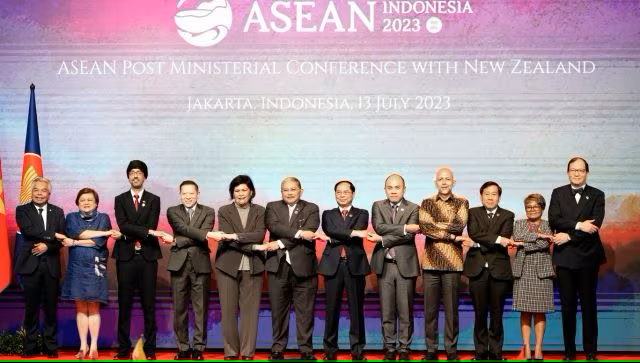
Yet Indonesia deserves credit for at least maintaining the facade under which the unity of the group was portrayed
-
Syed Ata Hasnain | West Asia gaining strategic significance for New Delhi
- August 21, 2023
- Posted by: admin
- Category: India

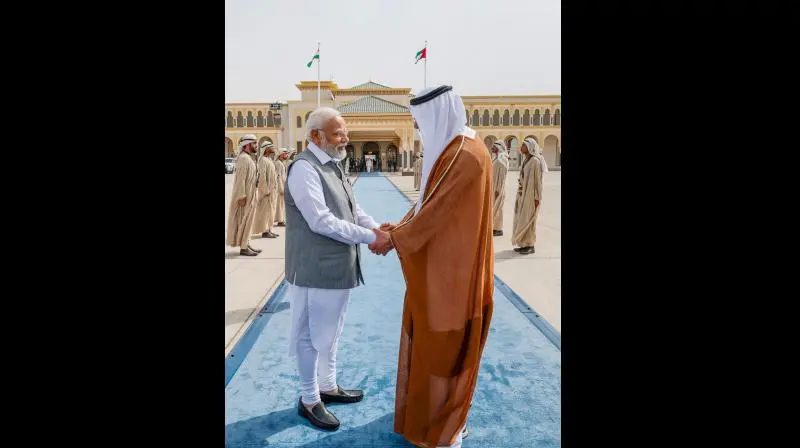
It’s after fairly a long time that I attended a half-day seminar on West Asia,
-
Book Review: The Bomb, the Bank, the Mullah and the Poppies
- August 21, 2023
- Posted by: admin
- Category: Pakistan

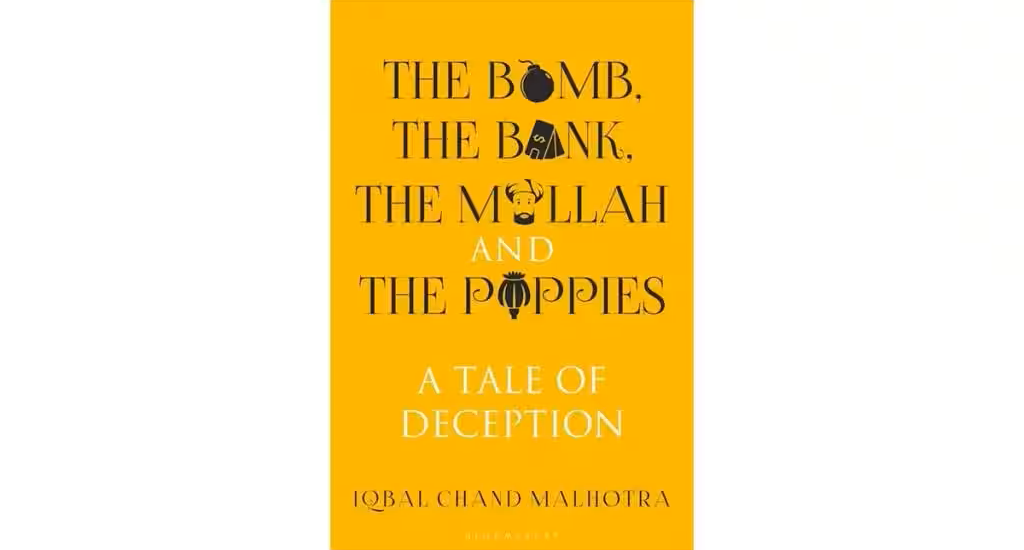
By Maj Gen Jagatbir Singh, VSM (Retd)
The Bomb, the Bank, the Mullah and the Poppies by Iqbal Malhotra is a deep dive into the Pakistani Deep State innovatively who used ‘the world’s sleaziest bank’, poppy cultivation and narcotics trade as a means to finance its nuclear programme. Though the title seems quite straightforward yet there are layers within layers that are unraveled in this book revealing the role played by various actors across the globe and their linkages. It’s a remarkable piece of research to say the least.
The book reveals the psyche of multiple actors who transformed Pakistan into a state the foundation of which lay on deceit and deception. The book brings out how Pakistan benefitted the most from the Soviet Union’s invasion of Afghanistan and this was used by its Generals to not only fill up their inventory of arms and weapons but also accumulate personal wealth. Their proxies were the various warlords whom they all supported at various times and discarded when they no longer suited their purpose, these included the Mujahideen, Northern Alliance and Taliban and names such as Hekmatyar, Dostum, Masood and Mullah Omar. They were able to install a pro Pakistani regime, the Taliban and created a dangerous state.
ALSO READ
jaishankar
From Armenia to Greece: India’s Geopolitics Unsettles Turkey, Azerbaijan, and Pakistan triad
SCO, france, DPI, europe, upi, european union, digital payment
France opens doors to India’s DPI outreach in Europe
G20 Summit, G20 summit latest news, Rajnath Singh, Prime Minister Narendra Modi, G20 news
India’s Defence Revolution: From Imports to Independence, and Beyond
brics
BRICS Summit in Johannesburg: Expansion, currency and Xi-Modi Meet will be the key focus
This enabled Pakistan to grow into a narco-nuclear state with an independent nuclear deterrent while the US was compelled to support it. In the process, the patrons of the Pakistani deep state enriched themselves with drug money while the majority of the population was battling poverty.ALSO READ
Fighter jet engine: How India is filling gaps in critical materials, core-technology
The range of characters is phenomenal, Presidents and Prime Ministers, Army Chiefs, powerful Ministers, Heads of Intelligence Agencies, Generals and Bankers and of course Nuclear Scientists and Terrorists all depending on each other and both supporting and turning against each other when the situation demands.Iqbal first learned of the Bank of Credit and Commerce (BCCI) through Hashim Khan Hoti, a classmate of his in Cambridge when he visited him in Hong Kong in 1983. That’s where he was introduced to someone from their Peshawar branch and was taken aback when many years later in 2001, he was welcomed by the same person in Northern Afghanistan when he had gone to shoot a documentary on Ahmed Shah Masood. By now Zubair ‘had been recruited as a deep cover sleeper agent to understand how the nascent Afghan-Pak heroin industry was structured’. The next day he was taken to a remote village where in the compound of a house there was a ‘steel container buried with millions of dollars and a warehouse packed with heroin’.
The book covers a timeline starting from 1965 till 2004. Agha Khan Abedi was Pakistan’s ‘first banker to fund the jihad against India’ through the United Bank Limited overseen by AB Awan, a Police Officer who had the ear of Ayub Khan, funded the “Master Cell” in Kashmir. When UBL was nationalised in 1974 he launched BCCI, incorporated in Luxembourg ‘which had an unregulated financial area, its shareholders all came from the Persian Gulf and its Headquarters was in London. In no time it became ‘the fastest growing bank in the world’.
The book also talks about a meeting in Multan on 20 January 1972 when Bhutto called ‘all eminent physicists and scientists in Pakistan’ to discuss how to make a nuclear bomb. He then decided to ‘tap the Muslim Brotherhood in the Arab world for funds.’ Sheikh Zayed of Abu Dhabi ‘was willing to support Pakistan in creating a financial vehicle that would ostensibly be private and at an arm’s length from both governments.’ Abedi who at that time was under house arrest for ‘routing non -performing loans to the Saighol group’ was released from detention and asked to head the bank. Kamal Adham, the Chief of Saudi Intelligence who was the CIA’s principal liaison man for the entire Middle East, was a frontman for the BCCI takeover of an American Bank.
General Zia was in charge of Pakistan during its boom years and did most for the bank. Till it closed down in July 1991 due to ‘false and deceitful’ accounting; the bank was involved in a ‘murky web of toxic illegality’ ranging from laundering drug money in Afghanistan and Colombia when it transformed from being a coffee to cocaine producing country by buying Banco Mercantil Nassau de Colombia; financing purchase to nuclear materials for Pakistan and even the Iran Contra deal.
ALSO READ
NISAR: Unleashing the power of dual vision – A collaborative odyssey of NASA and ISRO
Lieutenant General Fazle Haq from the Guides Cavalry, was a close friend of General Zia, as the Corps Commander of 11 Corps he had arrested Bhutto. He would go on to serve as Governor of NWFP and took advantage of the political upheavals in Afghanistan which post the overthrow of the Shah of Iran ‘had blocked the Westward route of Afghan opium ‘set up a lucrative opium refining business in NWFP and shipped refined heroin to Western Europe and North America. Abedi met General Fazle Haq through Ghulam Ishaq Khan and BCCI funded these refineries as well as ships owned by Gokal brothers to transport the drugs. He also played a major role in training the Mujahideen, many years later after having joined politics he was assassinated in 1991.Once the Soviets agreed to a withdrawal from Afghanistan, Pakistan realised that US aid would eventually dry up. They now turned towards Iran to leverage the KRL’s skills and assets. AQ Khan was soon trading in nuclear goods with diverse nations such as Iran, Libya and North Korea all with the backing of the deep state. The book also talks about his interview with Kuldip Nayar in 1987 during Exercise Brasstacks when he mentioned that Pakistan ‘had the atom bomb and would not hesitate to use it if it had its back to the wall.’
General Zia ‘believed he was one step ahead of the US’ and along with General Mirza Aslam Beg and Hamid Gul prepared a regional strategic consensus paper proposing that Iran, Afghanistan and Pakistan come together’ in a pact lubricated by nuclear cooperation’. To add greater complexity Pakistan had agreed to be an intermediary between China and Saudi Arabia to supply the latter long-range missiles to offset US military aid to Israel. In return Pakistan would secure renewed financial assistance for its nuclear programme’.
The cause of the air crash killing General Zia on 17 August 1988 remains unsolved, General Akhtar Abdur Rehman the Chairman Joint Chiefs of Staff and after Zia the second most powerful man also died in the crash. He had headed ISI for ten years. Was someone wanting to cut off the ‘hydra headed monster fuelling nuclear proliferation and narcotics smuggling ‘.
General Aslam Beg was not on board the aircraft but was airborne in a separate aircraft seeing the crash, he circled over the burning wreckage for a minute and then flew to Rawalpindi in his aircraft was Major General Jahangir Karamat who later also became the Army Chief.
Iqbal writes how Prime Minister Benazir was ‘disempowered’ as she had a President Ghulam Ishaq Khan who despised her and retained power under the 8th Amendment of the Constitution to dismiss her, Nawaz Sharif the Punjab Governor who was backed by the Army and the Foreign Minister Sahabzada Yakub Khan’s loyalties also lay with the Zia generation.
The constant warfare between General Beg and Benazir frayed Dr AQ Khan’s nerves and he got in touch with Hussain Haqqani to construct the IJI coalition, he also got Gul worked up regarding the nuclear programme and the later began ‘plotting the assassination of Benazir’ for which he approached (the yet unknown) Osama Bin Laden. Gul then took Osama to meet Nawaz Sharif. Osama wanted $10 million and Nawaz Sharif to transform Pakistan into a strict Islamic State. On getting to know of the plot she replaced Gul with Lieutenant General SR Kallue. General Mirza of course made him realise that he was ‘unwelcomed’ and transferred all responsibilities of the proxy war in Kashmir and the KRL to the DGMI General Asad Durrani.
The book also tells us about General Asif Nawaz Janjua, who succeeded General Mirza Aslam Beg as the Pakistan Army Chief’. Lieutenant General Asad Durrani the DG ISI, under the secret orders of General Beg and Lieutenant General Hamid Gul one of the most powerful General’s during President Zia’s regime, had started planning to dislodge President Najibullah’s government in Kabul. Gul was of the view that Afghanistan needed to be brought under a strict Islamic regime, which would enable the consolidation of opium cultivation and its processing into heroin for export to Europe and North America.
General Janjua wanted to bring Ahmad Shah Massoud into the post-Najibullah Afghan government and accompanied by Nawaz Sharif and Saudi Intelligence Chief Prince Turki bin Faisal, flew to Kabul on 29 April 1992 to welcome the Massoud-supported Sibghatullah Mojadidi government, after Hekmatyar’s forces had been routed from Kabul. Here General Janjua was shocked to learn that Hekmatyar was being advised by Gul not to sign the peace agreement.
Ultimately, General Shuja died of a heart attack while on his treadmill. His brother then wrote a masterpiece on the Pakistan Army;’ Crossed Swords’ and the family claimed he had been poisoned. Hamid Gul from being a powerful Corps Commander was shunted out as the DG Heavy Industries Taxila. A job he refused to take and resigned. He remained controversial till his death in 2015.
The book reveals how AQ Khan had targeted Professor Pervez Hoodbhoy, Pakistan’s leading theoretical nuclear physicist, regarding an article in 1993 questioning the security of Pakistan’s bomb. General Shamin Alam Khan, Chairman of the Joint Chiefs of Staff called him regarding his article in which he wrote of Permissive Action Links (PALs)-command-and-control mechanisms to prevent a bomb from being hot-wired or triggered accidentally. “Hoodbhoy saw Khan emerge and glower at him as he walked out” of General Shamin’s office. When asked by Shamin how PALs worked, a horrified Hoodbhoy revealed that none of them, AQ Khan included, knew anything about PALs or had even thought about securing Pakistan’s bomb.
Iqbal tells us how the newly appointed DGMO Major General Pervez Musharraf charmed Benazir into ordering the revival and escalation of the Kashmir campaign. However, concealed under this umbrella were the hidden agendas of both KRL and the thrust into Afghanistan.
Benazir’ took a shine to the wily Musharraf’ because she needed the Army on her side. Musharraf began the recruitment drive at the Afghan refugee camps run by the ISI. The first batches of Talibs from the madrassas run by Maulana Fazlur Rahman were trained near the Baluch border with Afghanistan.
Next was Markaz Dawa Al Irshad (MDI), an organisation, founded in 1987. Osama bin Laden contributed $1 million to it and the MDI created a Military Wing in 1990 called Lashkar-e-Taiba (LeT).’ Musharraf’s patronage made LeT the largest jihadi-terror organisation in Pakistan’. Some years later he would pay ‘war lords who stood between the Taliban and Kabul $ 3 million’ to desert Masood.
The book is fascinating and Iqbal needs to be complimented for connecting all the dots as he gives us a peep into the entrails of the deep state the revelations which make one wonder in disbelief.
What the book clearly brings out that illegal trades in narcotics cannot survive without end-to-end patronage of both the security agencies and the administration. Iqbal’s research is meticulous and he has compiled the facts backed by references to expose ISI as one of the biggest drug cartels as well as how Pakistan carried out an illegal nuclear materials and technology trade. We now look forward to the sequel and the exposure of the continuing role of Pakistan and the ISI at the centre of this complex web of deceit as there has been no change in the leopard’s spots.
Reviewer of the book is an Indian Army Veteran.
Disclaimer: Views expressed are personal and do not reflect the official position or policy of Financial Express Online. Reproducing this content without permission is prohibited.
MORE STORIES ON
Book review
Get live Share Market updates and latest India News and business news on Financial Express. Download Financial Express App for latest business news. -
A Peek Into Everyday China : Is The Cake Getting Smaller As India Expands
- August 21, 2023
- Posted by: admin
- Category: China

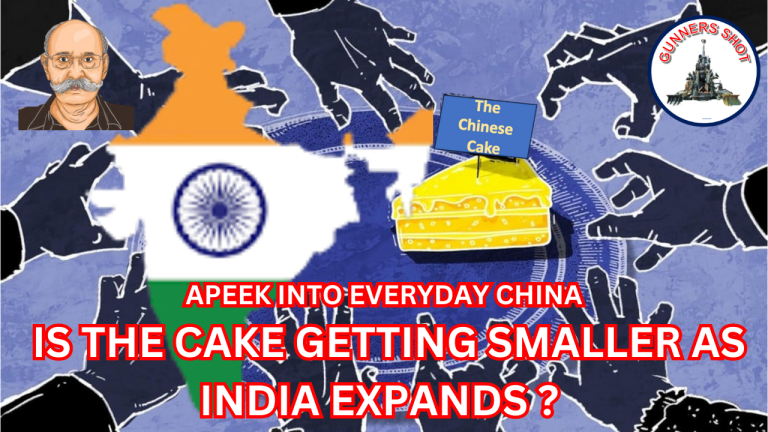
There is no doubt that China is going through economically tough times.
-
World View | PM Modi’s UAE visit — here’s how it renewed the focus for a new vigour in bilateral relations
- August 21, 2023
- Posted by: admin
- Categories: India, UAE

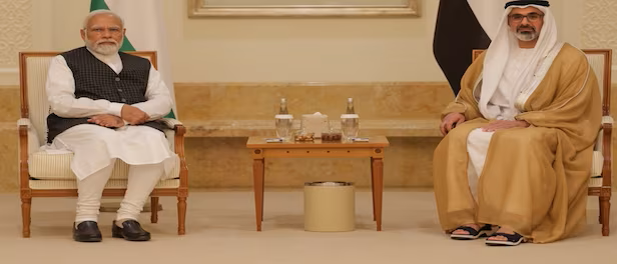
After a highly successful sixth visit to France on 13th and 14th July, Prime Minister Narendra Modi embarked on his one-day visit to UAE on Saturday. This visit (Modi’s fifth visit to UAE) clearly explains the importance that the two comprehensive strategic partners — India and UAE– accord to the growing bilateral and trilateral relationships.
The fact that the Crown Prince of UAE Sheikh Khaled Mohamed bin Zayed Al Nahyan received PM Modi at the Abu Dhabi airport speaks of an affectionate bonding between the leaders and the two countries.
Also Read: PM Narendra Modi leaves for India after ‘productive’ visit to UAE
You May Like
Dubai EMAAR Villa For Sale Price Might Surprise You.
Dubai Villas | Search Ads
by Taboola Sponsored Links
This relationship between India and UAE has many firsts to its credit. UAE was the first country PM Modi visited after being sworn in. Even though UAE and other GCC countries are barely couple of hours away the relationship was marred by absence of high level interactions for over three decades. Again, the first country in the region with which India has a Comprehensive Strategic Partnership. UAE also has the unique distinction in the West Asian region of hosting the largest Indian diaspora of over 3.3 million and consequently the increased remittances.
Providing land for an Indian temple, which might be inaugurated in 2024, UAE also projects and is positioning itself as a moderniser and a tolerant nation and a middle power exercising strategic autonomy. Their World Tolerance Summit was well appreciated. It also became the first country in the OIC (Organisation of Islamic Cooperation) to invite an Indian Foreign Minister in 2019 to address the Foreign ministers meet while stunting Pakistani efforts to continuously criminalise the Kashmir issue.
Recognising regional terrorism
It also recognised that Islamabad and Rawalpindi were harnessing terrorism as an instrument of their foreign policy against India. Hence in the wake of Pulwama attacks and Indian response as well as on abrogation of Art 370, Abu Dhabi took a holistic view and respected Indian sensibilities.
It has also emerged as a major partner in the fight against extremism, terrorism and radicalisation. It supports India at the UN and the proposed Comprehensive Convention of International Terrorism (CCIT). In fact, it is possibly the first country which has repatriated several wanted offenders and criminals as our intelligence and security cooperation has moved apace.
UAE can easily boast of having the largest number of Indian companies across the spectrum and the highest inward investments from India while committing $75 billion into India even in new areas. First GCC country to have allowed an Indian company– OVL– to have equity in its exploration blocks as it is engaged in the Indian strategic petroleum reserves, thereby ensuring not only being one of the top five suppliers of oil but also ensuring India’s energy security.
India-UAE Trade
Even as UAE remains India’s3rd largest trading partner with an objective of $100 billion by 2025 from current $85 billion, mostly for transit, no wonder it became the first country with which New Delhi negotiated and signed a Comprehensive Economic Partnership Agreement (CEPA) in the shortest possible time over a year ago which has shown tremendous promise and mutually beneficial matrix. Pm Modi mentioned that trade had grown by 20% and could even reach the target of $ 100 bn by the time the G20 Summit takes place.
Even in the so called western QUAD or Quartet I2U2, UAE is a critical partner with Israel and USA where several projects including $2 billion Emirati investment in Food Parks is already in pipe line. Likewise, India and UAE form an integral part of new arrangement with USA and Saudi Arabia focusing on infrastructure and connectivity (IUSU). India has restarted negotiations for the India-GCC FTA and partnership in which CEPA can be a ready format.
As such the trilateral between India-UAE-France has been consistently identifying newer areas of security cooperation, especially given the fact that UAE is as much a part of the Indian Ocean Initiatives including IORA and Indo-Pacific Oceans Initiative (IPOI) which are critical for closer maritime security and connectivity.
In the recent trilateral format dialogue of the foreign Ministers and focal points it was agreed that a road map for cooperation including in defence, energy, environment and people-to-people exchanges has to be worked out.
Efforts are being undertaken to further promote compatibility, and joint development and co-production, whilst seeking out avenues for further collaboration and training between the three countries’ defence forces. As such Defence, Space and security cooperation have indeed amplified a great deal with frequent exchanges and exercises both bilaterally and multilaterally.
New domains
No wonder the External Affairs Ministry Spokesman mentioned; “The Prime Minister’s visit will be an opportunity to identify ways to take this (Comprehensive Strategic Partnership) forward in various domains such as energy, education, healthcare, food security, fin-tech, defence and culture.”
During the visit it was agreed that IIT Delhi will set up a campus in UAE the second IIT abroad after the one in Tanzania. Also an important agreement was to bilateral trade settlements in national currencies as the weaponisation of financial instruments and the de-dollarisation is on the anvil. As such UPI and Ru Pay card have been accepted in UAE and many other countries .
One will have to see if the recent decision on the Indo-Pacific Framework for cooperation agreed in Paris, will extend to eventually include UAE as well. Logically it might. Likewise, Cooperation in Africa with India could be a new trilateral initiative either with France or with Israel or both for ensuring food and maritime security.
UAE as COP-28 chair
Prime Minister Modi also endorsed the UAE‘s COP 28 chairing and the objectives for ensuring no let up in Climate Change goals and pursuit of decarbonisation, access and financing for green technologies and mitigation and adaptation as New Delhi itself follows these assiduously in her own G20 presidency. UAE is a special guest at the G20 and PM Modi reiterated the invite to Sheikh Zayed to attend the September summit. During his meeting with COP 28 Chairman Sultan al Jaber, the PM extended India’s full support.
UAE is following a ‘No Problem Policy’ with its neighbours as it is diversifying and modernising its economy. China has become a major BRI (Belt and Road Initiative) collaborator for UAE’s quest for economic growth and along with India it is an important partner in their ‘Act East Policy’ framework. Hence, a geo strategic competition between India and China will have its own repercussions and reverberations in the region especially as the race to the bottom among super powers has already begun with no end in sight to the Russia -Ukraine war.
Since challenges of a transitional order are confronting the world, including India, the UAE and West Asia, PM Modi’s visit was a timely reiteration of the importance of this pivotal comprehensive strategic partnership and to reemphasise and renew the focus for new vigour in bilateral relations at the highest level.—The author, Amb. Anil Trigunayat, is a former Indian Ambassador to Jordan, Libya and Malta, and currently heads the West Asia Experts Group at Vivekananda International Foundation. Views expressed are personal.
